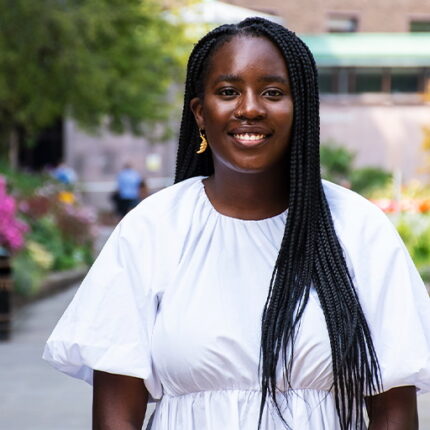Just over a year ago, when I applied for my master’s, I found myself the “beneficiary” of the whisper networks women have long cultivated to keep each other safe.
I had planned to apply for a course in a department that had lecturers who were known for unwanted sexual advances. An advisor strongly discouraged me and suggested I find an alternative programme. On this advice, I applied for a different course in a different department.
Ten months later, I was walking past the very department I avoided, listening to the Degrees of Abuse podcast. As women describe their experience of sexual misconduct within that very department, the lack of institutional support, and the attempts to silence them.
Some of these women, whom I met a few months later, became friends that I would stand in solidarity with as they bravely speak up for themselves and others.
However, what I didn’t realise was that bravery was a requirement for being a woman in academia. I thought time management and motivation were going to be the biggest challenges. I didn’t realise the resilience needed to go through the complaints process. I thought all-nighters and long lectures were going to be the greatest test of endurance.
I thought asking lecturers questions and speaking up in seminars were going to be the scariest risks during my degree. I didn’t realise women have to be courageous enough to put their academic career at risk if they wanted justice.
Policies and cultures
A tiny handful of universities have a policy banning academic staff from pursuing sexual or romantic relationships with students. While UUK has now published guidance on staff-student sexual misconduct, the historic reticence of universities to challenge the toxic cultures and instead to protect their reputations will not be easily dismantled.
This goes beyond just imbalanced power relationships but the extent to which universities brush off claims of inappropriate behaviours exhibited by their staff. I use misconduct here specifically to include harassment and assault as well as unwelcome, unwanted, and sexualised non-verbal communication, all of which contribute to hostile environments.
In every university, there are “creepy” lecturers – ones that don’t quite understand personal space, ones that make uncomfortable comments and try to pass them off as jokes and ones that constantly teeter on the edge of what is “acceptable” because they know they have job security, influence and power.
They don’t have confidence in their universities to deal with the issue. So students create whisper networks – whom to have as a supervisor, whom to avoid, who to never sit next to, if you have to sit next to them, who you should keep your coat and scarf on around so they can’t touch you as easily. These whisper networks are students’ attempt at self-preservation – at survival.
Universities hide behind incomplete policies that offer incomplete protection to students. These policies “discourage” and “advise against”. In universities like mine, they even define harassment as conduct that is both unwelcome and “unwarranted” – implying that, based on the opinions of other staff members, there can be cases in which a sexual advance is “warranted” – and thus it cannot possibly be harassment.
These policies hide perpetrators and make students complicit. They place the burden of proof on survivors, make them bare themselves in front of their abuser’s colleagues and rarely, if ever, create a sense of closure, safety, or justice.
Silence will not protect us
Instead of proactively protecting students or providing avenues for redress, some universities have used NDAs and confidentiality clauses. They have scared survivors into silence, hoping that their silence creates walls that confine these stories and hide the truth.
But what we, as women and other marginalised members of academia, have all learnt is that silence will not protect us. Silence merely permits perpetrators to move from institution to institution, without being challenged and without ever being held accountable.
For as long as I have been a student, there has been talk of policy reform for sexual harassment at universities. It is clear that existing policies are not working and universities are failing their students.
When students feel that they have to apply for a different course because universities cannot guarantee their safety, universities have failed them. When students have to organise symposia to be heard, universities have failed them. When students have to use each other as warning systems and whisper networks, universities have failed them. When students have to report to sexual misconduct at the hands of staff, universities have failed them.
By consistently silencing individuals, universities have created cultures in which no one person is ever safe. Those failures must now be redressed.












